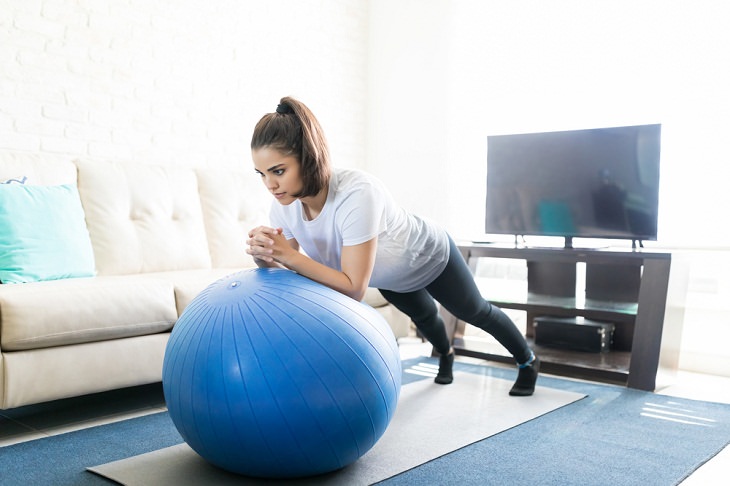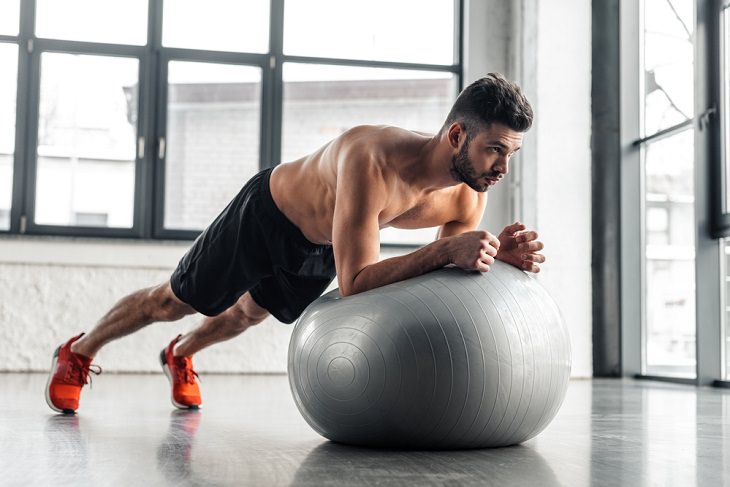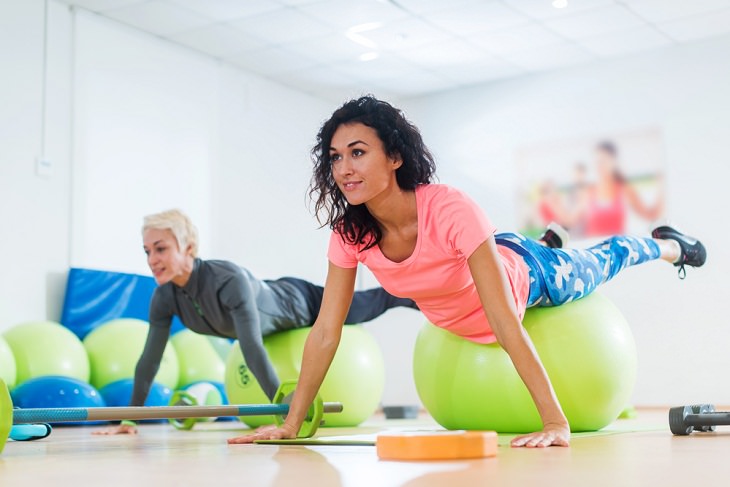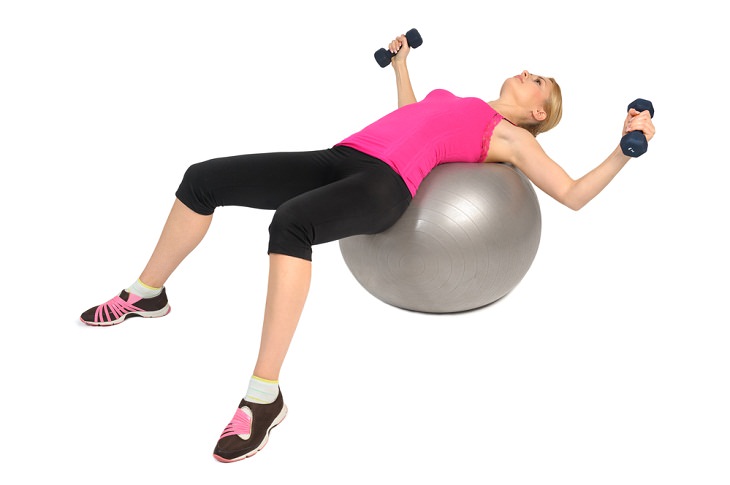8 Useful Stability Ball Exercises for a Full-Body Workout
It’s known by many names – exercise ball,
stability ball, gym ball, balance ball, and even Swiss ball – and has
several wonderful benefits. These big bouncy balls are found in every
gym these days but can also be used at home to include in your exercise
regimen. In fact, these balls are a great way to improve strength,
cardio endurance, and balance.
Leading fitness experts say that stability
balls can help train your abs, improve your posture and balance, and can
strengthen your back and core. The best part about this ball is that
you don’t need to be a gym expert to use it and can easily incorporate
it into your workout routine at home by learning how to use it
effectively. Moreover, it won’t even take much space, is cheap and
lightweight, and can be quickly inflated and deflated.


Before you decide on getting one of these
balls, however, you must know which is the right size for you. For
example, people between 5 feet and 5.5 feet should choose a
55-centimeter ball. Those who are between 5'6 and 5'11 should opt for a
65-centimeter ball. Lastly, a 75-centimeter ball would be ideal for
people between 6 feet and 6'3 in height.
Now, let's take a look at some common and easy stability ball workouts
that will be beneficial for your whole body.
1. Single-Leg Bridge
Benefits: Increased posterior chain
strength, improved proximal hip and core stability, and better hip
dissociation.
Step 1: Lie face-up on the floor behind the ball with your knees bent.
Place your feet on the ball and your arms on the floor by your sides.
Now slowly raise your hips off the floor until your upper back is
stabilized.
Step 2: Pause and then slowly raise one leg straight up. Lower the leg
and then return to start. Repeat after 30 seconds and keep alternating
the legs. Perform 2-3 sets on each side.
2. Incline plank


Benefits: Works on the abdominal muscles as
well as the other ab muscles and the core muscles that run from the
pelvis along the spine and up to the shoulder girdle.
Step 1: Place the stability ball on the floor and get into a pushup
position with your hands on it. Rest your weight on your elbows on it.
Step 2: Hold your body in a straight line from head to heels. Make sure
that your hips don’t sag. Maintain this position for at least 20-30
seconds. Do 3-5 sets and rest for 30 seconds after each set.
3. Wall Squats
Benefits: Works your quadriceps, gluteal
muscles (a set of smaller muscles located in the buttocks), hamstrings,
hip flexors, and core.
Step 1: Place the stability ball up against a wall and make sure it
braces against your back. Now, lower down into a squat position until
your legs form 90-degree angles at the knees.
Step 2: Use the ball to support your back and roll it from your lower
back to your shoulder blades. Squat down low to deepen the move and
provide more stability. Complete 10 to 15 reps (repetitions).
Note: Make sure that your knees don’t roll out to the sides during the
exercise. They should be in line with the rest of your body.
4. Hamstring curl
Benefits: Works your gluteal muscles,
hamstrings, and core.
Step 1: Lie on your back and put your calves and heels on the stability
ball. Your arms should be on your sides and your palms should be facing
down.
Step 2: Move your hips upward by squeezing your gluteal muscles and
hamstrings until your body is straight. Engage your core and extend your
legs straight out, moving the ball away from you. Slowly lift your hips
and bend your knees.
Step 3: Roll the ball back in by pulling your heels towards your
buttocks until the soles of your feet touch the ball. Now, stretch your
knees and lower your hips and back to the floor. Repeat. Complete 12 to
15 reps.
5. Back Extension
Benefits: Strengthens the muscles of the
lower back.
Step 1: Place the front of your body from hips to ribs on the ball. Your
legs should be extended straight behind while your toes must rest on
the floor. Your body should form one, long line.
Step 2: Raise your chest high and hold on to the ball for balance. Pull
your shoulders back as you exhale and keep your neck in line with the
spine. Return to a relaxed position. Complete 12–15 reps.
6. Push-ups



Benefits: Works your chest and shoulder
muscles. Also helps activate a number of core muscles.
Step 1: Lie with your stomach on the stability ball with both feet and
hands on the floor, hip- and shoulder-width apart. Place your hands on
the ball at the sides of your chest and your toes on the floor with your
legs straight. Now, push your body up until your arms are almost
straight. Make sure that your elbows aren’t locked.
Step 2: Hold and balance for two seconds. Return to the starting
position slowly and continue for 8–10 reps.
7. Chest press

Benefits: Works your shoulders and triceps.
Strengthens both your chest and core muscles.
Step 1: Lie your back down on the ball while holding one dumbbell in
each hand. Keep your feet flat on the floor with your ankles directly
under your knees. Bring both weights up to meet your shoulders while
bending your arms with your elbows out wide.
Step 2: Engage your core with your hips lifted. Exhale slowly as you
press the weights toward the ceiling. Make sure that you are holding the
dumbbells by your chest with your palms facing forward. Hold this
position for a second.
Step 3: Lower the dumbbells back to the starting position slowly. Repeat
while using your abs to keep your body still. Complete three sets of
10-12 reps keeping your hips lifted all through.
8. Mountain Climber
Benefits: Great cardio workout. Also works
at your core.
Step 1: Begin by resting your hands on either side of the ball. Extend
your feet out behind you in a way that you are leaning on the ball in a
high plank position.
Step 2: With your core engaged, bring your right knee forward under your
chest. Switch legs quickly, bringing the left knee forward while
sending your right foot back. Return to the starting position. Complete
12 reps, alternating legs.